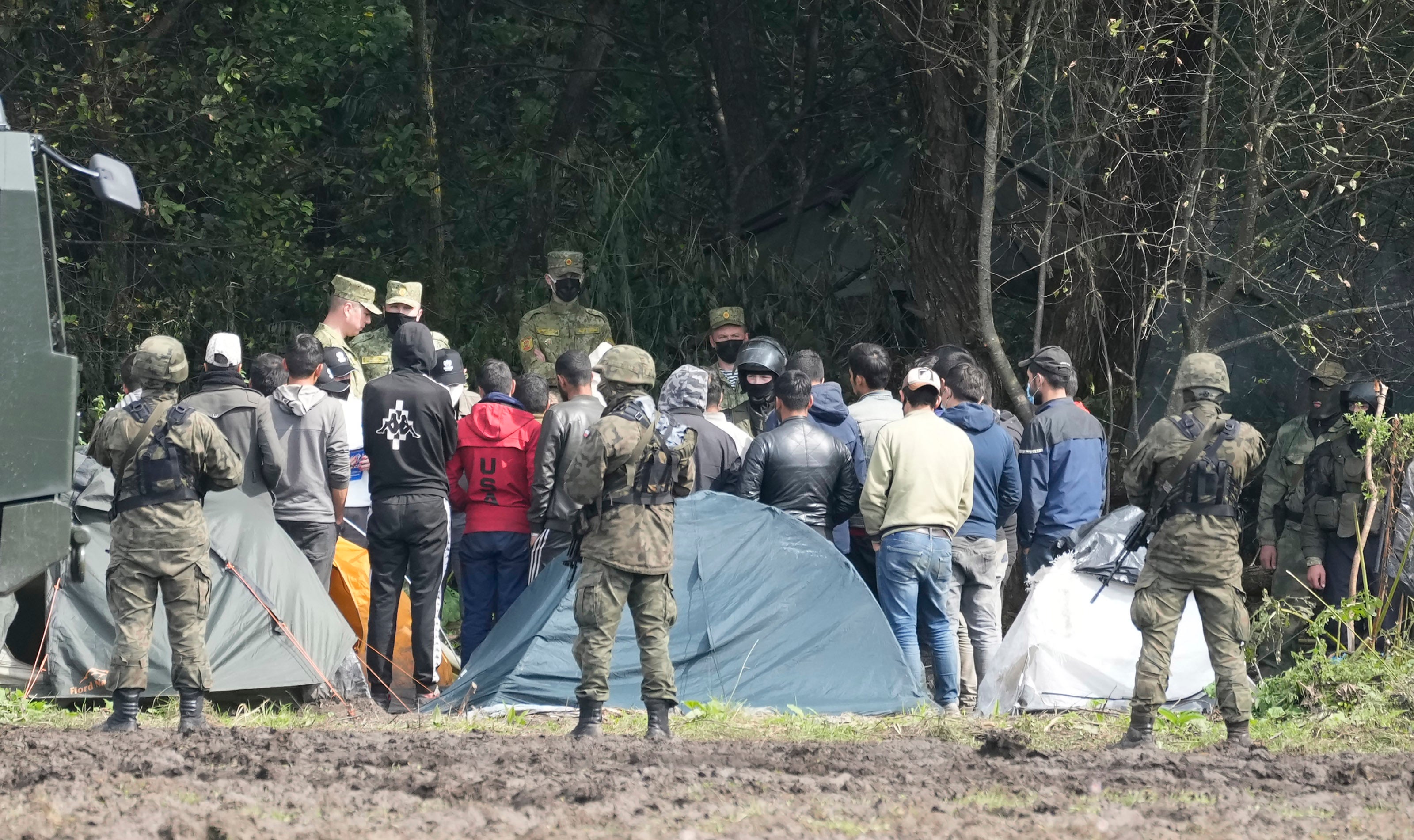Poland sending 500 more troops to protect Belarus border
Poland's government says it is sending 500 additional troops and special vehicles to the border with Belarus to strengthen it against increasing migrant pressure that it says is orchestrated by Belarus and Russia

Your support helps us to tell the story
From reproductive rights to climate change to Big Tech, The Independent is on the ground when the story is developing. Whether it's investigating the financials of Elon Musk's pro-Trump PAC or producing our latest documentary, 'The A Word', which shines a light on the American women fighting for reproductive rights, we know how important it is to parse out the facts from the messaging.
At such a critical moment in US history, we need reporters on the ground. Your donation allows us to keep sending journalists to speak to both sides of the story.
The Independent is trusted by Americans across the entire political spectrum. And unlike many other quality news outlets, we choose not to lock Americans out of our reporting and analysis with paywalls. We believe quality journalism should be available to everyone, paid for by those who can afford it.
Your support makes all the difference.Poland is sending 500 additional army troops and special vehicles to its border with Belarus to strengthen it against increasing migrant pressures which the government says is orchestrated by Belarus and Russia to destabilize the European Union
“We are dealing with a well-organized action directed from Minsk and Moscow,” Prime Minister Mateusz Morawiecki told a news conference Monday.
“We will defend Poland's border with full determination,” and prevent migrants from crossing in, Morawiecki said after a meeting with Poland's interior minister and the head of the Border Guards.
Interior Minister Mariusz Kaminski said 500 more troops and eight specialized vehicles will be sent to the border this week.
EU members Poland and Lithuania are facing increasing migrant pressures on their borders with Belarus, which are part of the bloc’s eastern border. They say it is a “hybrid attack” by Belarusian President Alexander Lukashenko’s regime in Minsk to destabilize the 27-nation EU. The border pressure began after Western countries introduced sanctions on Lukashenko's regime for its oppressive measures against the opposition.
Morawiecki noted, however, that necessary medical care will be extended to those migrants who reached Poland.
He said three migrants, including an Iraqi man, who were found dead Sunday close to the Belarusian border died from hypothermia and exhaustion. A detailed autopsy will be carried on the Iraqi, after his companions reported he behaved strangely before his death. Kaminski said at some point, the men were turned back to Belarus by Poland's border guards.
Polish border guards also saw the body of a woman close to the border, on the Belarus side, according to Border Guards chief, Gen. Tomasz Praga.
Morawiecki and Kaminski said migrants from the Mideast and Africa are paying large sums in Belarus ostensibly to be smuggled into Germany, but are being left by Belarusian servicemen in the dense pristine forests and bogs on the border with Poland. They said Belarus has introduced visa-free travel with some Mideast countries that have “great illegal migration potential” to bring in migrants and push them toward Poland and Lithuania.
Morawiecki said a pregnant migrant woman was recently apprehended as she was leading 13 migrant children that were not hers. The children were hospitalized, some of them with COVID-19.
But humanitarian organizations are drawing attention to the plight of the migrants.
Poland and Lithuania are building razor wire fences, have increased border patrols and have introduced a temporary state of emergency along their borders to stop illegal migration but they are also barring reporters and humanitarian groups from the border strip. Poland is to decide at the end of September whether to extend the 30-day state of emergency that was introduced on Sept. 2.
Authorities said there were over 8,000 attempted illegal crossings from Belarus this year, including over 3,800 attempts so far in September.